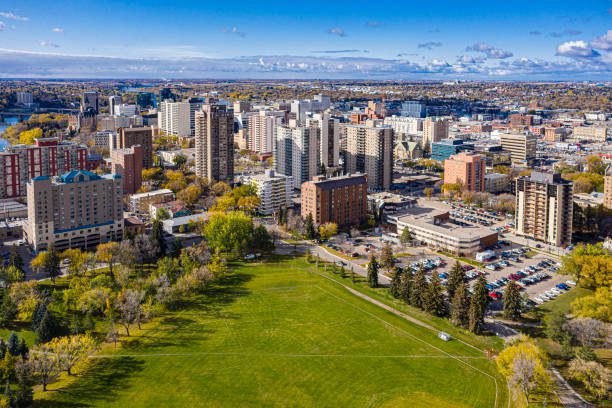Eligibility Criteria for Canada PR as a Caregiver
To become a permanent resident in Canada as a caregiver, specific criteria must be met. These requirements vary depending on the caregiver program.
Live-in Caregiver Program
- At least 24 months of authorized full-time live-in employment, or
- 3,900 hours of authorized full-time employment within a minimum of 22 months
Home Child Care Provider and Home Support Worker Pilots
- At least 24 months of full-time work experience in home child care or home support
- The applicant must be working in these roles with valid permits
General Requirements
- The caregiver must have a valid work permit
- English or French language proficiency
- Completed medical exams and police certificates
Education
- Minimum of post-secondary education that is equivalent to a Canadian one-year post-secondary credential
Application Process
- Application starts with obtaining a work permit
- Accumulate the required work experience
- Submit an application for permanent residence through the appropriate program
For detailed information about these programs, visit the Caregivers – Canada.ca and Pathways for caregivers – Canada.ca.
Application Process for Canada PR
Applying for permanent resident (PR) status in Canada involves several key steps. These steps include gathering the required documents, completing the application, paying the submission fees, and undergoing biometrics and a medical exam.
Gathering Required Documents
Applicants must collect several important documents before starting the application process. These typically include a valid passport, proof of job offer or employment in Canada, and educational credentials. Birth certificates and marriage certificates may also be necessary for family members.
Additionally, candidates will need a police clearance certificate from their home country. This document ensures that they have no criminal record. Make sure all documents are translated into English or French if they aren’t in those languages.
Completing the Application
Once the documents are ready, the next step is to fill out the application forms. These forms are available on the official Canadian government website. It’s crucial to fill every section accurately to avoid delays or rejections.
Personal information, employment history, and details about your family members need to be included. Double-check all entries for mistakes before submission. Incorrect or incomplete forms can result in the application being returned or delayed.
Submission and Fees
After completing the forms, submit them online or through the appropriate channels mentioned on the government website. An application fee must be paid at this stage. The fee varies depending on whether you are applying just for yourself or including family members.
Keep the payment receipt as proof. This receipt might be required later in the process. Make sure to track your application status online using the provided tracking number.
Biometrics and Medical Exam
Candidates must provide biometrics, including fingerprints and photos, as part of the application process. Appointments for biometric collection can be scheduled at designated centers. This step is mandatory and helps ensure the identity of the applicant.
A medical examination is also required. The exam must be done by a panel physician approved by the Canadian government. The medical report ensures that the applicant does not have any conditions that could pose a public health risk in Canada.
Post-Arrival Support and Services
Once caregivers receive permanent resident status on arrival in Canada, several support services will be available to help them settle in and find employment. These services are crucial for a smooth transition and long-term residency planning.
Initial Settlement Assistance
New caregivers will receive help with essential tasks such as finding housing, opening bank accounts, and accessing healthcare. Local settlement agencies offer personalized assistance, including language classes that help caregivers improve their English or French skills.
These agencies also provide information about public transportation, community resources, and legal rights in Canada. It is important for caregivers to connect with these agencies promptly after arrival to take full advantage of the support available.
Employment for Caregivers
Caregivers entering under the new pilot programs can start working immediately. They are permitted to work for different organizations that provide temporary or part-time home care. This flexibility allows them to choose from a variety of employment opportunities that suit their skills and preferences.
Employment agencies and job boards regularly post openings for home care positions. Engaging with these resources helps caregivers secure stable employment quickly. Networking within the community and through professional associations further enhances job prospects.
Long-Term Residency Planning
Long-term residency involves understanding the pathways to citizenship and the requirements for maintaining permanent resident status. Caregivers are encouraged to participate in community activities and volunteer work to integrate into Canadian society.
Educational opportunities, such as vocational training or higher education, can improve job prospects and career advancement. Financial planning services are also available to assist caregivers in managing their finances and planning for the future.
Support programs provide guidance on family reunification for those who wish to bring relatives to Canada. These comprehensive services ensure that caregivers can not only settle but also thrive in their new environment.


